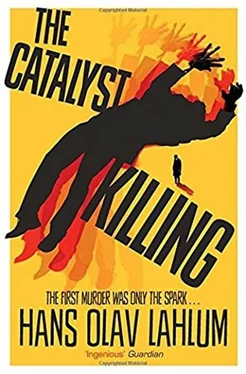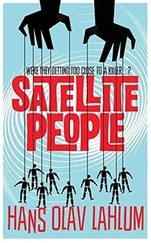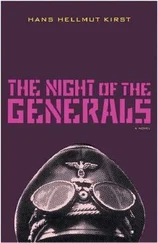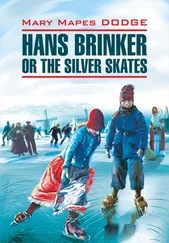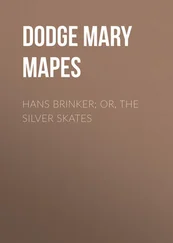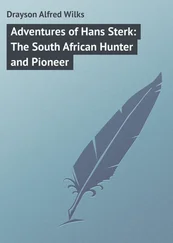‘His remains were found a few weeks later. His body was discovered one morning in the middle of the scree where they had searched so many times before, his head crushed. So it’s possible that the fall did kill him, but how it had happened remained a mystery. As long as there was someone alive who remembered Karl, people speculated about murder and gods and devils.’
‘And what do you think happened?’
For a moment, Henry Alfred Lien seemed to be glad that I had asked his opinion. Not that there was a hint of a smile on his face, but he straightened his body when he answered.
‘As you ask, I am a down-to-earth old farmer who does not believe in murder, gods or devils. I think that the lad jumped to his death and someone in his family or a close friend ran to the body and covered it up for a few days in order to avoid the shame of suicide. And it would not surprise me if something similar happened to this Falko chap a couple of years ago. According to what was said in the papers, he was also a young man with some wild ideas.’
I asked Henry Alfred Lien if he knew exactly when the mysterious death of Karl had taken place. He nodded and his face became even graver.
‘I don’t remember if my grandfather ever told me the exact date, but I do remember the year as clearly as if I had been told yesterday. The lad Karl met his mysterious end in the mountains in the summer of 1868. And that is a strange coincidence. I thought that perhaps this Falko had heard the story of Karl’s death and that had somehow tipped him over the edge himself.’
I nodded pensively. My discovery at the cabin did not substantiate the notion of a suicide, but nor did it disprove it. And I had to admit that it certainly was a remarkable coincidence.
But I did not pursue it any further, and instead probed a bit more into my host’s history with the NS.
Henry Alfred Lien sank a little into his chair again as soon this topic was raised. He hunched up his shoulders and replied that it was a phase in his life that he had hoped was now behind him. He had received an unexpectedly harsh sentence after the war, but had taken his punishment and had not had any contact with members of the NS since. Of the names I mentioned, he could only remember having met Frans Heidenberg briefly during the war.
We sat in silence after this. I did not have any more questions and he did not say more than he needed to. So I improvised and asked why he had ended up joining the NS in the first place.
The question seemed to open a tiny crack in his otherwise stony defence. Henry Alfred Lien took a minute to drink some more coffee before he answered. Then suddenly his voice rumbled on a fair distance.
‘There are evidently a great many who say they can’t explain why today. But I can. I have never been a Nazi for ideological reasons, or a man of ideology in any way really. In my youth, I flirted with the Liberal Party, but was not really politically active. In 1940, I believed it was set in stone that Germany would win the war and did what I could to ensure that my farm, community and country would suffer as little damage as possible. I entirely misjudged the situation and ended up as a NS section leader and spokesman, and could then not withdraw later without risking my life. In the last year of the war, I realized that we were hurtling towards an abyss and that it was too late to jump ship. I didn’t dare jump before the war was over, for fear of the Germans – and only hours after they capitulated, the Home Front was at my door. Believe me or not, the choice is yours. But that is the truth.’
I believed him instantly. Rarely did the people I questioned so openly declare themselves to be opportunists and cowards, without those words being mentioned, to be fair.
We sat in silence again. It felt as though we had touched on something interesting and I tried to push a little more. I pointed to the photographs on the wall and asked if the children were doing well. This proved to be another bull’s eye. Henry Alfred Lien sank even further into his chair before answering.
‘My daughters are both doing well, though I don’t see them as often as I would like to. But unfortunately I know very little about my son. Apparently he’s a lawyer and politician for the Labour Party in Trondheim now, and is said to be doing very well. And I have two grandsons, twins, who are nearly old enough to be confirmed. But I’ve never met them and their grandfather from Valdres will certainly not be invited to their confirmation.’
We were definitely onto something now. The stony crevices of his face were shifting. He stopped talking, but I could see that he wanted to continue. He lit his pipe, his hand still steady, and sat smoking in silence. His gaze drifted out of the window towards the mountains on the horizon.
‘The children, that’s the saddest part of it all. Had I not had a family, I would never have joined the NS. I wanted to secure the children’s future. I hoped that one day they would thank me for it. But it was quite the opposite. First of all, my choice created problems for them, and they never forgave me for that. It was hard enough to serve my sentence after the war, worried as I was about the family, but it was even worse to get out afterwards. For the first three years, my wife and I lived here together on the farm like strangers. We did the work together that we had to, exchanging only short messages where necessary. We slept in separate rooms and made our own food. When the children rang, it was to speak to her, and they hung up if I answered the telephone.’
Henry Alfred Lien stopped abruptly, but then continued after a short pause, when I nodded encouragingly.
‘Then my wife fell ill in 1953. It was terribly sad, but in a strange way it also marked a transition to something better. We started to talk again and I was able to show how much I loved her in those final years. She finally forgave me some months before she died, and, as was her wish, so did our daughters. The three of us sat together at her funeral. Even though it will never be the same, they do come to visit me now. And they have started to call me father again.’
‘Your son, on the other hand…’
He sighed and leaned his great arms on the table, which sagged slightly under their weight.
‘It’s hopeless. He sat on his own in the church at his mother’s funeral and has never set foot here again since. His sisters were nearly grown up when the war started and left home as soon as it was over, so perhaps it was easier for them. But my son was only eleven when the war came, and was still a youth when it was over. It wasn’t easy to be the son of a Nazi at high school in those days. And my son is like me: stubborn as an ox and slow to change. So I still hope for a miracle every time the telephone rings and every day when the postman comes, but I have stopped believing that he will forgive me.’
He suddenly pointed at the floor, his great, coarse hand trembling dangerously in the air.
‘I remember in the autumn of 1940, before my son turned twelve, he stood in the middle of the room and screamed at me, Father, you can’t do this to us or yourself. Hitler is a dictator, Nasjonal Samling are traitors and Germany will lose the war. What you are doing will only bring trouble. And he was right, of course.’
Henry Alfred Lien sat there and stared at the floor for a while, as though his son was still standing there. His eyes were fixed as his voice continued. The tractor was making very unsteady progress now.
‘I have sent him letter after letter, begging for forgiveness, without ever getting an answer. He put the phone down every time I tried to call, even after his mother’s death. Then one day in autumn 1960, I drove to Trondheim, found his house and waited at the gate with a present until he came home from work. But even then he did not want to talk to me. He said that Nazi scum would always be Nazi scum, no matter what age, and that he no longer believed a word I said. I stood there like a dog at the gate and stared at my son’s closed door for over an hour. Then I drove all the way home again without having resolved anything. Every time I drove over a bridge I thought that it would perhaps be just as well if I drove off it. And since then the years have passed with no change, and I have no idea what might make him change his mind.’
Читать дальше
